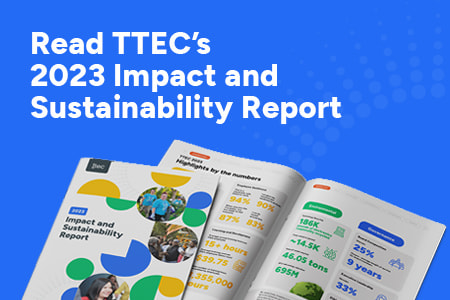
FCR is now
TTEC Agility
Visit TTEC Agility to learn more about how our
customers last when we put them first
About TTEC Agility (formerly FCR)
In 2005, FCR (First Call Resolution) was launched to help digitally native companies with their customer support as they grow. TTEC acquired the company in 2019. And now, we are relaunching and rebranding FCR under the TTEC family of brands that will be known as TTEC Agility.
TTEC Agility (formerly FCR) will further integrate the agile operations, front-line associates and engaged leadership that clients value with FCR, with TTEC's broader geographic scale and technical capabilities to help emerging digitally native firms jump-start their CX transformation journeys. It offers the ideal blend of human talent and AI-enabled technology to optimize the customer experience with speed and precision for hypergrowth firms.
Together with leading AI partners, TTEC Agility builds on FCR's legacy to create nimble and modular CX solutions that make it easy for clients to reduce customer effort, create better experiences, and lower operating expenses. At TTEC Agility, globally diverse talent and purpose-built digital tools work together to deliver great experiences based on TTEC's CX best practices.
TTEC Agility, an independent brand within TTEC Engage, delivers direct access to an ecosystem of strategically aligned partners like Zendesk to propel clients towards impactful, scalable, and sustainable CX outcomes, while still keeping the essence of everything that made FCR the source for startup and other growing companies.

